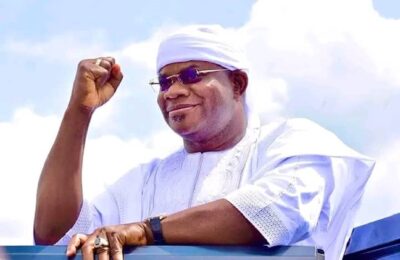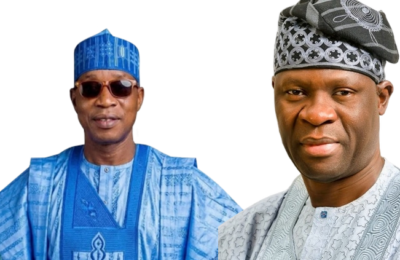The blood of martyrs is no longer just a page in church history; it is the headline Nigeria refuses to write and the world refuses to read. Across villages from Jos Plateau to Benue, from Oko Ekwu in Igalamela to Dekina, Kogi, and the forests of Southern Kaduna, the ground drinks the blood of Christians, yet the airwaves remain untroubled. In these sacred landscapes where hymns once ascended like incense, gunfire has become the final chorus, and women, men, and children become corpses before their prayers are finished. The world scrolls past their agony. The silence is louder than the cries.
According to Open Doors International’s 2024 World Watch List, Nigeria remains the deadliest country on earth for Christians. Nearly ninety percent of all faith-driven killings worldwide happen here. This staggering reality should shake the conscience of humanity, yet no sustained emergency sessions are held at the United Nations, no sanctions are tied to the atrocities, and no global protests erupt in city squares. The plight of Nigeria’s Christians is treated as an inconvenient footnote to geopolitics, as though their blood has a lesser hue. Martin Luther King Jr. once warned, “Injustice anywhere is a threat to justice everywhere.” If this is true, then the complicity of silence around Nigeria’s persecuted Christians is not merely Africa’s shame; it is humanity’s sin. Their massacres are not isolated skirmishes, nor tribal quarrels—they are systematic assaults on faith, memory, and hope. Pope Francis, lamenting in 2023, declared, “The blood of martyrs today is more numerous than in the first centuries.” Few places embody his lament more starkly than Nigeria, where stepping into a sanctuary feels like walking into a crossfire.
The atrocities bear names. In Oko Ekwu, Igalamela/Odolu, young Christian girls were first defiled and then slaughtered. Their corpses were not only evidence of murder but of the desecration of innocence. In Dekina, families who had gone to farm came back in lifeless bags. Also families who gathered for night vigils found their altars turned into funeral pyres. Children’s Holy Bibles soaked in blood became the silent testimony of that midnight massacre. In Jos Plateau, the very soil has memorized the rhythm of bloodshed. Churches that once reverberates with psalms now lie as ruins, sanctified only by ashes. Each incident is not a statistic but a parable of cruelty. Each massacre is not only about numbers but about names—daughters whose dreams were cut short, fathers who were breadwinners until cutlass and bullets tore their bodies, mothers who carried both Holy Scripture and suffering until their last breath. In Nigerian parlance, “when the drum beats too long, even the deaf will dance.” The drumbeat of persecution here has been long and loud, but the world has chosen deafness.
The Nigerian state, instead of being the shepherd of its citizens, too often plays the distracted gatekeeper. Condemnations are issued, committees are inaugurated, yet justice rarely arrives. The dead are buried in masses without their killers facing trials. The cycle continues, as though the government has become anesthetized to blood. Elie Wiesel, Holocaust survivor and Nobel laureate, warned, “The opposite of love is not hate, it’s indifference.” Indifference in Abuja fertilizes despair in Igalamela and widens the graveyards of Jos Plateau. The international community is no less guilty. Western governments that pride themselves as champions of human rights tighten sanctions for less, but when it comes to Nigerian Christians, they reach for silence. Chimamanda Ngozi Adichie wrote, “Stories matter. Many stories matter.” Yet the story of persecuted Nigerian Christians is deliberately under-told, often drowned in the diplomatic jargon of “communal clashes.” To call these massacres “clashes” is not just a distortion; it is a lie. You do not call sheep slaughtered by wolves a clash; it is predation, pure and simple.
The persecution of Nigerian Christians is not unprecedented in history. The first-century church in Jerusalem fled to the mountains because of organized terror. Roman emperors threw Christians to lions, yet their hymns shook the amphitheaters. Tertullian, one of the early Church Fathers, declared, “The blood of the martyrs is the seed of the Church.” The same paradox is alive in Nigeria today. But history also warns us of consequences. When the world ignored the Jews in Nazi Germany, the Holocaust became an abyss of conscience. When it dismissed whispers from Rwanda, a million Tutsi corpses turned rivers red. Silence is never neutral; silence is fertilizer for genocide. Archbishop Desmond Tutu said it clearly: “If you are neutral in situations of injustice, you have chosen the side of the oppressor.” The neutrality of the world toward Nigeria’s persecuted Christians has already become the weapon of their killers.
Despite the horrors, faith in Nigeria has not died. In the ashes of Oko Ekwu’s ruins, hymns still rise. In Dekina’s shadowed villages, prayers still thunder. In Plateau’s valley of bones, believers still quote the psalmist: “Though I walk through the valley of the shadow of death, I will fear no evil: for thou art with me” (Psalm 23:4). This is the paradox of Christian faith: fragile, yet indestructible. It is both a candle flickering in the storm and a fire no water can quench. The persecuted Christians of Nigeria embody Paul’s confession: “We are hard pressed on every side, but not crushed; perplexed, but not in despair; persecuted, but not abandoned; struck down, but not destroyed” (2 Corinthians 4:8–9). Yet, while hope endures, hope must not be mistaken for immunity. Faith is not a substitute for justice. The church’s resilience does not absolve Nigeria or the world of its duty to defend the weak. The faith that sings in the night also cries for deliverance in the morning.
The time has come for the world to stop hiding behind euphemisms and convenient silences. Action is needed. Diplomatic pressure must be placed on Nigerian leaders to secure vulnerable communities. Sanctions should target not just political elites but also financiers of terror. International tribunals should name and shame the perpetrators. Civil society worldwide should adopt Nigerian Christian communities as a cause worthy of their loudest campaigns. The destabilization of Nigeria is not a local affair. Nigeria is Africa’s largest democracy and most populous nation. If it descends further into religious bloodletting, the shockwaves will not stop at the River Niger. West Africa will bleed, migration crises will escalate, terrorism will globalize. To ignore Nigeria is to wound global peace.
The Christian philosopher Søren Kierkegaard once wrote, “The tyrant dies and his rule is over; the martyr dies and his rule begins.” But martyrs should not have to multiply before the conscience of humanity awakens. Their blood should not become the ink with which history writes another chapter of regret. It is time the world awakens. Martyrs should not be buried in silence. Their blood demands remembrance, justice, and action. If history teaches anything, it is this: when the cries of the innocent are ignored, the consequences eventually knock on every nation’s door. The soil of Oko Ekwu still speaks, the ashes of Dekina still rise, the ruins of Jos Plateau still mourn, and the tears of Igalamela still fall. Their testimony is unbroken: the Church in Nigeria is under siege, and silence is no longer an option. The call of Christ still resounds across Nigeria’s valleys: “Blessed are those who are persecuted for righteousness’ sake, for theirs is the kingdom of heaven” (Matthew 5:10). But heaven’s promise does not excuse earth’s negligence. Justice delayed is justice denied, and silence is complicity. The time has come for the world to choose: either to stand with Nigeria’s persecuted Christians or to let history record once again that humanity kept quiet while martyrs died without headlines.
– Inah Boniface Ocholi writes from Ayah – Igalamela/Odolu LGA, Kogi state.
08152094428 (SMS Only)




